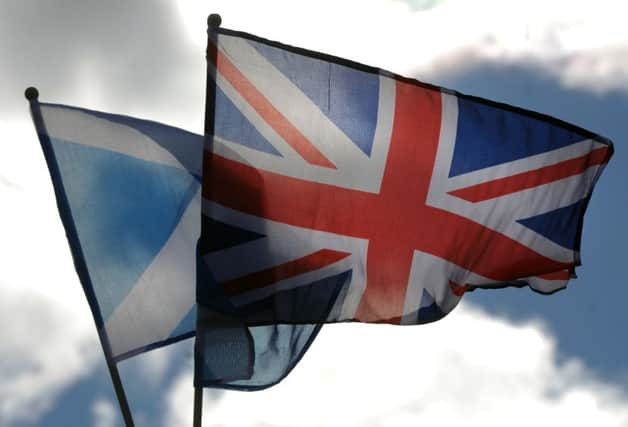Leaders: CBI criticism more about politics


From the outset, CBI Scotland behaved quite properly in asking the Scottish Government a long list of questions about how independence would impact on its membership. Such answers as it received, it judged to be inadequate. It took time to analyse the government’s white paper, and concluded flatly that the SNP’s plans did not add up to a credible economic plan.
These and other critical statements did not produce a cacophony of complaints from its membership that they were either wrong or did not properly represent their views. Since John Cridland, the UK director-general, and Iain McMillan, the Scottish director, talk to their members pretty frequently, it is quite reasonable for them to take the view without conducting a plebiscite that the majority of their members think independence would be a bad thing.
Advertisement
Hide AdAdvertisement
Hide AdThe resignations that have occurred because of the decision to move on to the field of play instead of just voicing dissent from the stands do not invalidate the conclusion that the CBI is in tune with most of its members. Media company STV decided the decision was incompatible with its broadcasting impartiality duty, the government-owned agencies decided it was at odds with their duty to stay out of politics, and the universities thought much the same.
Their decisions were correct, as was that of the one company to quit so far, on the grounds that its chairman is an active campaigner for independence. If others find the same conflict, then it would be reasonable for them to depart as well.
This would not mean the CBI has done the wrong thing. Regardless of whether one agrees with its politics, given that it genuinely believes that independence would be damaging for most of its member businesses, why should it not campaign alongside Better Together? Is that not the right thing to do in order, by its lights, to protect what it believes are the interests of its members?
Suppose, for example, that a referendum on European Union membership comes about, whether under independence or inside the Union. The CBI has been quite clear that continued EU membership is in the best interests of jobs and profits. Would it be wrong for it to campaign on that basis?
Such thoughts invite the conclusion that those who are criticising the CBI now are doing so because they disagree with its politics rather than reasons of principle.
The reaction is also a sign that the indyref is getting serious. What is certain is that there will be more bruising episodes like this to come.
Fitting tribute to Muir at last
John Muir, regrettably but aptly, fits the biblical description of the prophet who has not been without honour, save in his own country. Not before time, this has been remedied by the creation and naming in his memory of a 134-mile walk between Helensburgh on Scotland’s west coast and Dunbar on the east.
In his East Lothian birthplace, the Dunbar home where he was born in 1838 has been a well-visited tribute museum and the nearby coastal John Muir country park is enjoyed by many visitors.
Advertisement
Hide AdAdvertisement
Hide AdBut outside of the locality, in Scotland as a whole, he has remained one of the least known of the Scots to have made a great impact on the world. That is distinctly odd for someone who is rightly greatly garlanded in the United States and named as the greatest Californian of all time.
His success came not from military, political, or exploratory triumph, but from a conquest of the human mind that is still spreading its influence around the world today more than a century after he arrived as an émigré in California and began to preach, not religion, but of the need for conservation. It led to the establishment of the United States’, and the world’s, first national parks – Yosemite and Sequioa.
This was the first active move to preserve wild land and its life from human encroachment for the purposes of nature conservation, a movement which has grown ever since.
Muir’s achievement and legacy is enormous. Though Scotland can’t match the US in the hundreds of schools, colleges, libraries, sports centres, streets, public parks, a beach, a mountain and a glacier all named after him, at least now there is a fitting national trail of recognition.